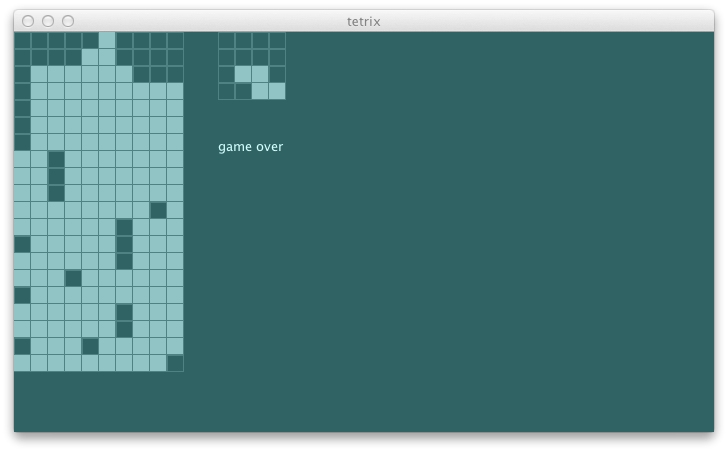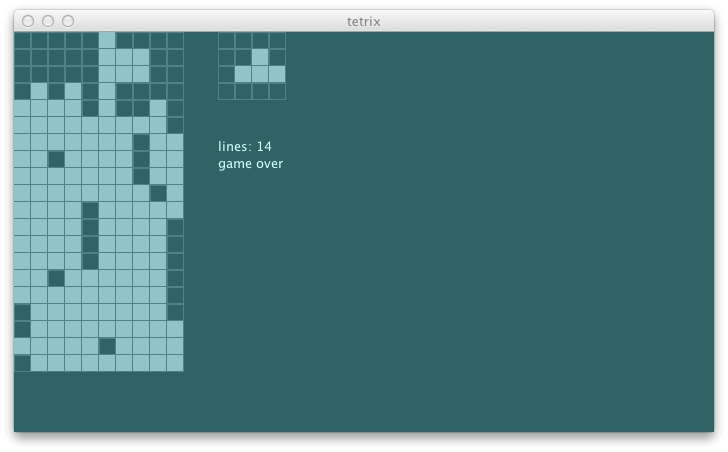tetrix in Scala — second level
second level
If we expanded the search tree to the second piece, it should roughly increase 36x fold. 360 ms is not bad. Let’s try this:
def bestMove(s0: GameState): StageMessage = {
var retval: Seq[StageMessage] = Nil
var current: Double = minUtility
stopWatch("bestMove") {
val nodes = actionSeqs(s0) map { seq =>
val ms = seq ++ Seq(Drop)
val s1 = Function.chain(ms map {toTrans})(s0)
val u = utility(s1)
if (u > current) {
current = u
retval = seq
} // if
SearchNode(s1, ms, u)
}
nodes foreach { node =>
actionSeqs(node.state) foreach { seq =>
val ms = seq ++ Seq(Drop)
val s2 = Function.chain(ms map {toTrans})(node.state)
val u = utility(s2)
if (u > current) {
current = u
retval = node.actions ++ seq
} // if
}
}
} // stopWatch
println("selected " + retval + " " + current.toString)
retval.headOption getOrElse {Tick}
}
Now it is starting to play much better. The thinking time ranged from 12 ms to 727 ms, but mostly they were around 100 or 200 ms.

I am now comfortable enough to letting it drop the pieces again:
class AgentActor(stageActor: ActorRef) extends Actor {
private[this] val agent = new Agent
def receive = {
case BestMove(s: GameState) =>
val message = agent.bestMove(s)
stageActor ! message
}
}
line number
Let’s display the number of deleted lines on the swing UI.
val unit = blockSize + blockMargin
g drawString ("lines: " + view.lineCount.toString, 12 * unit, 7 * unit)
Having this should help us track if our changes are improving the performance of the agent or not.

Next Page
❧
cavity